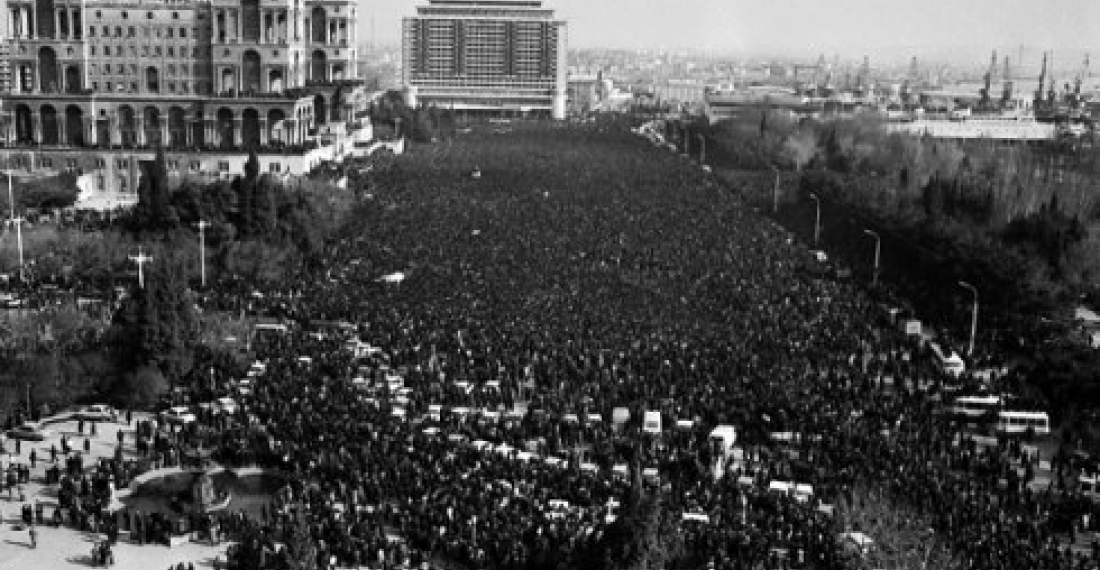Сегодня Азербайджан отмечает 27-ю годовщину Черного января.
В ответ на массовые протесты общественности во главе с национальным движением за независимость, 19 января 1920 года советское руководство объявило чрезвычайное положение в Баку. В ночь с 19 на 20 января 1990 года советские войска вошли в Баку и поубивав безоружных мирных азербайджанцев. 26,000 солдат, снаряженных тяжелой военной техникой, такими как танки, ворвались в город. Деспотичные репрессии привели к массовым убийствам 137 гражданских лиц, более 800 получили ранения и многие пропали без вести. (По некоторым данным, число погибших было на самом деле гораздо выше). Советская армия также напала на здание государственного телевидения, отрезав от электричества в попытке предотвратить распространение новостей международному сообществу.
20 января стал определяющим моментом в стремлении Азербайджана к государственности и независимости. Этот день встряхнул советскую власть в Азербайджане, и привел к восстановлению независимости 18 октября 1991 года.
В своем тогдашнем докладе организация Human Rights Watch сообщила, что "настолько непропорциональная сила, примененная Советской Армией в ночь с 19 на 20 января, в ответ на сопротивление азербайджанцев представляло собой упражнение по коллективному наказанию.. ..такие наказания в Баку советскими солдатами, возможно, являлись предупреждением для националистов, и не только в Азербайджане, но и в других республиках Советского Союза".
The Wall Street Journal 4 января 1995 года сообщила, что тогдашний советский лидер Горбачев решил использовать насилие против "стремящегося к независимости Азербайджана". Позже, в 1995 году, Горбачев извинился перед Азербайджаном, заявив: "Введение чрезвычайного положения в Баку было самой большой ошибкой моей политической карьеры".
источник: commonspace.eu






